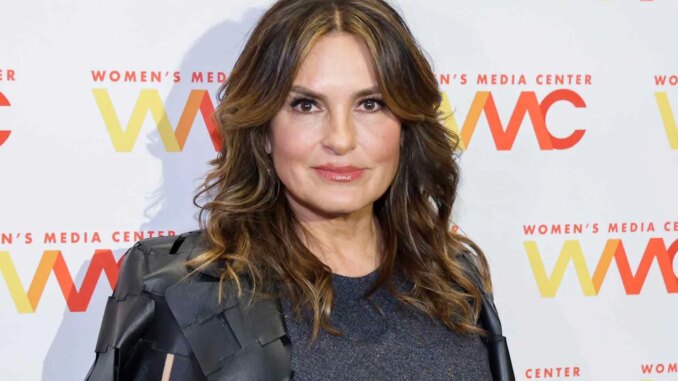
The digital world, for all its cacophony, occasionally delivers moments of such pure, unadulterated joy that they transcend the screens and ripple through the collective consciousness like a seismic event. Such was the case with Mariska Hargitay and Chris Meloni, a reunion that wasn't just a television event, but an emotional homecoming for millions, igniting a fan frenzy that echoed the fervent devotion reserved for rock stars and mythological heroes.
For over a decade, Olivia Benson and Elliot Stabler were the undisputed heart of Law & Order: SVU. They were more than partners; they were a finely tuned instrument of justice, two halves of a fiercely protective whole. Their chemistry, a lightning-strike blend of professional respect, unspoken affection, and shared trauma, burned with an intensity rarely seen on network television. Fans didn't just watch them; they invested in them, dissecting every glance, every charged silence, every protective gesture. When Chris Meloni abruptly departed the show after Season 12, it left a gaping, unhealed wound in the show's fabric and, more profoundly, in the hearts of its viewers. Elliot Stabler's ghost lingered, a constant, aching absence that no new character could fill. The "will they/won't they" wasn't just paused; it was tragically aborted, leaving a decade of unresolved longing.
Then came the whispers. Little by little, the universe began to conspire. Hargitay and Meloni, whose real-life friendship never wavered, started dropping tantalizing crumbs. Casual Instagram selfies, always captioned with an affectionate teasing, would send their followers into a tailspin. A shared laugh on a red carpet, a heartfelt birthday message – each interaction was meticulously documented, dissected, and disseminated, fueling the fervent hope that what was once lost might, against all odds, be found again. These weren't just actors reconnecting; it was a testament to a genuine bond that transcended the characters, a bond that mirrored the very connection fans had longed to see rekindled on screen.
But it was the official announcement, the first glimpses of Meloni back in Stabler's familiar trench coat, that truly sparked the inferno. Social media, the modern arena for collective effervescence, became a riot of capital letters, crying emojis, and breathless exclamation points. The first promo for Law & Order: Organized Crime, teasing Stabler's return, was not merely a commercial; it was a lifeline thrown to a drowning fandom. The most powerful image, a still shot of Stabler gently touching Benson's face, his hand a familiar comfort against her cheek, detonated an emotional bomb. It was a wordless reunion, a moment pregnant with a decade of missed conversations, unshared burdens, and lingering love.
The fan frenzy wasn't just excitement; it was a tidal wave of catharsis. It was the release of a decade's worth of pent-up yearning. Keyboard warriors hammered out celebratory tweets, digital confetti showered feeds with "Bensler is BACK!" GIFs proliferated, meticulously cataloging every shared glance and loaded word from their past. The cultural impact was immediate and palpable. News outlets, not just entertainment blogs, covered the "reunion" as a major event. It wasn't just about a new show; it was about closure, about a beloved narrative finally finding its missing piece.
Why such a profound reaction? Firstly, it was the power of nostalgia, a yearning for a comfort zone in an increasingly chaotic world. Benson and Stabler represented a constancy, a moral compass in the dark underbelly of crime. Secondly, it was the fulfillment of an epic, unresolved love story – not necessarily romantic in the traditional sense, but a bond so deep it transcended definition. Fans had invested years, even decades, in this relationship, and its abrupt end felt like a betrayal. The reunion was redemption, a promise kept. Lastly, the palpable authenticity of Hargitay and Meloni's real-life friendship amplified the on-screen magic. Their genuine affection for each other bled into their performances, making the characters' reunion feel less like acting and more like a profound, organic truth.
Mariska Hargitay and Chris Meloni's heartfelt reunion was more than just a marketing coup for a new series. It was a profound cultural moment, a testament to the enduring power of fictional characters to carve out real space in our hearts. It illustrated the deep emotional investment fans make in stories, and how a truly iconic partnership can, even after years apart, rekindle a fire so bright it sends tremors through the digital landscape, proving that some bonds, both on-screen and off, are simply too powerful to be forgotten. The fan frenzy was not just a reaction; it was a collective sigh of relief, a joyful shout, and a ringing endorsement of a love story for the ages.
